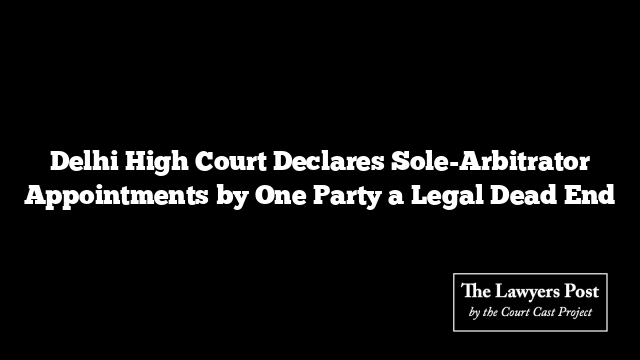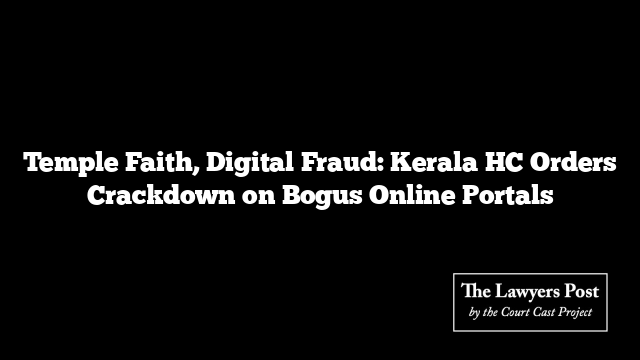In a ruling that could upend many arbitration-based settlements, the Delhi High Court has struck a hard line against unilateral appointments of sole arbitrators—declaring such appointments inherently void, regardless of whether any party raises an objection.
The case—M/s Mahavir Prasad Gupta and Sons v. Govt of NCT of Delhi—saw Justices Vibhu Bakhru and Tejas Karia issue a decisive reminder: in Indian-seated arbitrations, one party cannot handpick an arbitrator without the other’s consent. If they do, the entire proceeding stands on legal quicksand.
And the fallout? Not only are such arbitral proceedings branded null and void, but any award born of them is equally worthless—unenforceable, unrecognizable, and open to be struck down under both Section 34 and Section 36 of the Arbitration and Conciliation Act.
“The law doesn’t wait for someone to protest,” the Bench remarked, underscoring that courts can invalidate such awards suo motu, without needing the losing party to even flag the issue.
In other words, even silence from both parties won’t rescue a lopsided arbitrator appointment. The principle is jurisdictional—and jurisdiction, the court said, can’t be patched over with hindsight or handshakes.
The Court was hearing an appeal by Mahavir Prasad Gupta and Sons, challenging a ₹1.76 crore award in their favour that had been tossed out by a lower court. The reason? The arbitrator had been appointed solely by them, a move the trial judge rightly deemed illegal.
The High Court backed that verdict and used the opportunity to clear a lingering misconception: conduct, cooperation, or even passive acceptance by the other party doesn’t amount to legal consent. The only acceptable waiver under Section 12(5) is an express, post-dispute agreement in writing—nothing less.
So for those trying to game the system with strategic appointments? The message is clear: pick an arbitrator together—or be prepared to watch your award collapse in court.





